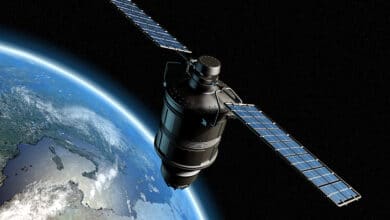
Being found today is easier than ever before. Thanks to various positioning services, which we constantly carry around with us on our smartphones, we can easily find our way around even in strange environments. But how does it actually work? What services will help us find our way around?
Most people are familiar with the GPS satellite network. Car navigation devices and Co. usually work with this network. On the smartphone, GPS positioning services are increasingly being used to open other services in addition to GPS. This raises the question of what lies behind names such as Glonass, Galileo or Beidou and how these programs can supplement or even replace GPS. In the following article we want to explore these questions and take a closer look at the various positioning and navigation services.
GPS: The beginning of navigation technology
GPS was originally developed for military use. For many years, satellite navigation was hardly usable by civilians because an artificial signal degradation placed it at an extreme disadvantage compared to military users. Only in the year 2000 this signal deterioration was stopped, with which the GPS boom began.
However, the mode of operation is simple: a total of 35 GPS satellites are in orbit and communicate with the receivers. This communication can be used to determine quite precisely where the receiver is on earth. For a long time, the accuracy was just under ten metres, which was perfectly sufficient for everyday use. With an update it was greatly improved and is now about 30 centimeters. This makes it possible to navigate almost precisely between buildings and in other rather critical terrain.
Glonass: The Russian Alternative
Glonass is, so to speak, the Russian alternative to the US GPS system. This navigation and positioning system is also satellite-based and was originally developed for military use. It was fully operational from 1996, but suffered increasingly from satellite failures in subsequent years, rendering it unusable. In 2005, Russia launched a successful revival action. Glonass could be put back into operation with an enormous investment of time and money. In practical use, however, it is still inferior to GPS. This results in an accuracy of 4.5 to 7.5 metres, works with only 23 satellites and does not exactly arouse the confidence of the average westerner. Functionally, however, it hardly differs from the much more prominent GPS.
Galileo: The European alternative
The main difference between Galileo and all other navigation technologies is that it is not used for military purposes. The system was developed by the EU and the Space Agency ESA. A total of 30 satellites are already responsible for the worldwide positioning of all Galileo devices. However, the system is not expected to be fully operational until 2020.
So far, there are two variants of Galileo. The open version for all offers a positioning accuracy of between five and eight metres, while the commercial version offers an accuracy of less than one metre.
Galileo does not differ from the US and Russian positioning systems in terms of functioning.
Beidou: The Chinese Alternative
As a country striving to become a world power, China wants to be independent of the many competitors who think differently. For this reason, it is hardly surprising that China also operates its own satellite positioning system. Beidou has been in operation since 2000 and the system has so far only been usable in China. From next year, however, it should be possible to use it worldwide, whereby the question arises as to which Western person will voluntarily switch to a Chinese locating system. The system is supposed to convince with a higher accuracy than the current gold level GPS. However, it should be noted that China’s satellite system is also offered in two variants with different accuracies. The open version determines the location with an accuracy of about five meters. In the commercial version, accuracies of less than 0.1 meters are to be achieved. Newer versions of Beidou sometimes have the name “Compass”.
The security of the positioning services
The operators of the positioning services can access the location data of all devices using the respective service. In many countries this is also permitted to a certain extent – in Germany, for example, in the context of crime prevention. So it is important to know who is behind which tracking service. Many Western people, for example, will have great reservations about making their location data available to a dictatorship like China. Furthermore, it should always be remembered that Glonass, GPS and Beidou are mainly used for military purposes. In case of doubt, the powers behind the system could shut down or block the positioning services or misuse the data collected for military purposes. Galileo is the notable exception and does not belong to any military service.
What services are installed on my smartphone?
Almost every modern smartphone has a GPS receiver. Many smartphones also use Glonass. Particularly in Chinese smartphones, there is also a two-way receiver in the vast majority of cases. If you want to find out which receivers are in your device, you can search the GSM Arena database.
Result: The various positioning services
It should be noted that all positioning services function in the same way. The terminals communicate with satellites orbiting the Earth. The location of the device can be determined via the signal transmission. In terms of accuracy, the services differ in terms of the positioning of the satellites on the one hand and the signals used on the other.
In principle, it makes sense to use more than one positioning system, as they all use different satellites. If one service fails, there is a high probability that another, more functional service will be available if several services are used.
However, it should be noted that the individual positioning services are all operated by different countries or organisations to which data could be disclosed through use. This always raises the question of the extent to which the power behind the service is trustworthy. It is not without reason that many people have reservations about using Russian or Chinese positioning services. Galileo could benefit greatly from this: As the only positioning service, Galileo will not be used for military purposes, but exclusively for civil purposes, which could result in a leap of faith.
